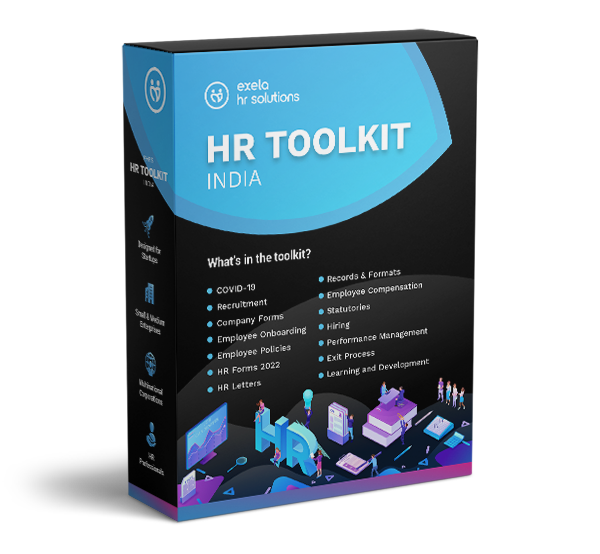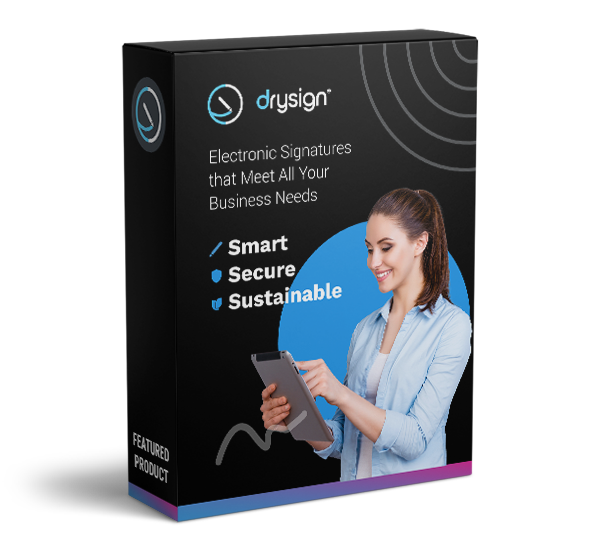
As we enter 2024, the dynamic nature of the business world continues to shape the role of Human Resources (HR) in organizations. The HR landscape is undergoing rapid changes influenced by technological advancements, societal shifts, and ever-evolving workforce expectations. In this context, it becomes imperative for HR professionals to not only adapt but also proactively lead initiatives that contribute to organizational success.
The beginning of a new year offers a valuable opportunity for HR leaders to reassess, recalibrate, and set the stage for a successful year ahead. Strategic HR planning involves a thoughtful examination of past successes and challenges, drawing insights from both triumphs and setbacks to inform future decisions. This blog aims to provide HR professionals with a comprehensive "Action List" – a strategic roadmap comprising ten essential elements that will empower them to navigate the complexities of the modern workplace and contribute to organizational excellence in 2024.
Dive in below to learn more about ten crucial aspects of HR management, providing insights, strategies, and practical tips for HR professionals to implement in their organizations. From leveraging technology to fostering a culture of diversity and inclusion, each element of the HR Action List is carefully crafted to address the key challenges and opportunities that HR leaders are likely to encounter in 2024.
HR Checklist for a Successful Beginning in 2024
Promoting Employee Engagement: Inspire a Thorough Review of HRIS Details
In fostering a dynamic and engaged workforce, it's pivotal to encourage employees to participate actively in the management of their professional information. This begins with a comprehensive review of their Human Resources Information System (HRIS) details. By taking a proactive approach, employees contribute to their data accuracy and the overall efficiency and effectiveness of organizational processes. Let's delve into the key aspects that warrant attention to ensure a seamless and accurate representation within the HRIS.
- Verify and update contact information and emergency contacts.
- Confirm job titles, departments, and reporting structures.
- Review and update skill sets and training records.
- Check alignment with employment agreements.
- Verify records for accurate assessments.
- Ensure awareness of updated company policies.
- Confirm accuracy for payroll and compliance.
- Check and manage leave balances.
- Provide input on HRIS functionality.
- Maintain account security vigilance.
- Utilize brief tutorials for effective HRIS use.
- Encourage ongoing reviews for accuracy.
- Emphasize the significance of work-life balance and introduce the conversation on PTO allowances.
Exploring Time Off: Engaging Conversations on PTO Policies
Navigating the modern workplace and valuing work-life balance is crucial. Let's explore Paid Time Off (PTO) policies to inform and empower employees. This discussion clarifies PTO terms, accrual processes, and usage guidelines, recognizing the importance of personal and professional well-being. We aim to foster a culture that acknowledges time off and actively supports and encourages employees to maximize their PTO benefits.
- Define PTO, covering vacation days, sick leave, and other leave types.
- Communicate PTO accrual rates and methods concisely.
- Clearly state any restrictions on PTO usage, like blackout dates or notice requirements.
- Provide a brief guide on requesting and approving PTO.
- Instruct employees to check their PTO balances regularly.
- Summarize policies on unused PTO, whether it rolls over or has an expiration date.
- Address unique situations like peak seasons or special requests briefly.
- Highlight productivity and well-being benefits from taking time off.
- Address common questions with concise answers.
- Conclude by encouraging open communication and expressing support for work-life balance through effective PTO use.
Optimizing Employee Benefits: Timely Benefit Reminders for Your Well-being
From health insurance to retirement plans, these reminders aim to keep employees in the loop about key benefit details, upcoming deadlines, and any policy updates. By staying connected with these timely reminders, employees empower themselves to make the most of the comprehensive benefits, contributing to their personal and professional flourishing.
- Express commitment to employee well-being and highlight the importance of benefit awareness.
- List key benefits briefly, including health insurance and retirement plans.
- Stress the need for timely reminders, especially during critical periods like open enrollment.
- Provide clear instructions on where to access detailed benefit information.
- Emphasize the importance of maximizing benefits for personal and family well-being.
- Mention that reminders may include updates on any policy changes.
- Include HR contact information for benefit-related queries.
- Highlight any digital tools for easy benefit access.
- Encourage confirmation of benefit reminder acknowledgment.
- Thank employees for their attention and reaffirm the company's dedication to comprehensive well-being support through benefits.
Boost Employees' Retirement Savings: Unpacking Catch-Up Contributions
Supercharge your employees' retirement nest egg by delving into the realm of catch-up contributions. Designed for those aged 50 or older, these additional contributions offer a strategic financial advantage. Let's explore the essentials, from eligibility criteria to making the most of this valuable tool for securing your financial future.
- Acknowledge the importance of retirement planning and introduce catch-up contributions as a valuable tool for employees.
- Define catch-up contributions as extra savings for those aged 50 or older.
- Specify eligible accounts like 401(k)s and IRAs for catch-up contributions.
- Highlight IRS-set maximum catch-up contribution limits.
- Emphasize how catch-up contributions benefit those starting retirement savings later in their careers.
- Provide concise instructions for making catch-up contributions.
- Briefly mention potential tax benefits associated with catch-up contributions.
- Specify how employees can seek more information or guidance, such as contacting HR or financial advisors.
- Urge eligible employees to consider utilizing catch-up contributions for enhanced retirement readiness.
- Conclude by expressing the company's commitment to supporting employees' financial well-being and offering resources for catch-up contribution queries.
Optimizing Time Off: Implementing a PTO Efficiency Check
Embark on a proactive approach to streamline Paid Time Off (PTO) processes through a focused PTO audit. This systematic review ensures accuracy and fairness in PTO management, promoting transparent practices that align with company policies. Let's delve into the essentials of conducting an efficient and beneficial PTO audit.
- Emphasize the importance of efficient PTO management and introduce the concept of a PTO audit.
- Clearly state a PTO audit as a systematic review of employee PTO balances, usage, and policy adherence.
- Outline the audit's purpose, emphasizing benefits like accuracy, compliance, and fair PTO distribution.
- Break down the audit into key components, including balance reviews, usage validation, and policy alignment.
- Emphasize transparent communication with employees about the audit process and objectives.
- Provide guidance on correcting discrepancies identified during the audit through training or policy reinforcement.
- Encourage feedback during or after the audit, fostering collaboration and addressing concerns.
- Explore opportunities to streamline PTO processes based on audit findings, improving overall efficiency.
- Stress thorough documentation for future reference and continuous improvement.
- Discuss the recommended frequency of PTO audits for accuracy and alignment with company goals.
- Conclude by highlighting the positive impact of PTO audits on well-managed, employee-centric workplaces, ensuring equitable and compliant PTO practices.
Also read out latest blog: HR Competencies for 2030: A Future Standard
Ensuring Compliance: Timely Fulfillment of Required Reporting
Embark on a journey of organizational transparency and compliance as we delve into the imperative task of completing all mandated reporting. This process ensures accurate and timely submission of essential documentation, fostering an environment of informed decision-making and adherence to industry standards.
- Emphasize the importance of timely and accurate reporting for organizational transparency and compliance.
- Clarify "required reporting" as mandated documentation, data, or information.
- Identify key components, such as financial reports or compliance documentation.
- Stress the significance of meeting reporting deadlines for informed decision-making.
- Encourage collaborative efforts for efficient reporting processes.
- Emphasize thorough reviews to minimize errors.
- Specify submission channels for clarity.
- Remind employees to align reports with standards and regulations.
- Establish a feedback system for continuous improvement.
- Highlight the importance of maintaining proper documentation.
- Conclude by noting the positive impact of completing required reporting for transparency, compliance, and informed decisions.
Evaluating Employee Rewards: Conducting a Compensation Analysis
Embark on a strategic journey to ensure fair and competitive employee compensation through a comprehensive compensation review. This process assesses salary, benefits, and performance, aligning them with industry benchmarks and company goals. Let's explore the essential components and benefits of this crucial review for a well-balanced and motivated workforce.
- Emphasize the importance of periodic compensation reviews for fair and competitive remuneration.
- Clearly outline it as an evaluation of salary and benefits against industry standards and company goals.
- Break down the review into key components, including base salaries, bonuses, benefits, and other compensation.
- Stress the need for benchmarking to maintain competitive compensation packages.
- Emphasize fairness in compensation, ensuring alignment with roles and responsibilities.
- Highlight the connection between compensation and merit-based performance.
- Establish a clear plan for communicating review outcomes to foster transparency.
- Provide guidance on resolving identified discrepancies equitably.
- Remind teams to ensure compliance with legal requirements and industry regulations.
- Encourage employee input through feedback or surveys for insights on compensation perceptions.
- Conclude by emphasizing the positive impact of a well-executed compensation review in retaining talent and fostering a fair and appreciative workplace culture.
Optimizing Rewards: Conducting a Compensation Evaluation
Enhance employee rewards through a focused compensation review. This process evaluates salaries, benefits, and performance alignment with industry benchmarks, fostering a motivated and content workforce. Let's delve into the key components and advantages of this essential review for sustained employee satisfaction and engagement.
- Emphasize the pivotal role of periodic compensation reviews in maintaining a competitive and fair organizational remuneration structure.
- Clearly define a compensation review as a systematic evaluation of employee compensation, encompassing salaries, bonuses, benefits, and additional perks.
- Articulate the primary objectives, including ensuring alignment with industry benchmarks, promoting fairness, and recognizing high performance.
- Break down the review into key components, such as base salaries, incentive structures, and comprehensive benefits packages.
- Emphasize the importance of benchmarking against industry standards to maintain competitiveness in the talent market.
- Highlight the commitment to equity, ensuring that compensation aligns with roles and responsibilities while maintaining fairness across the workforce.
- Stress the connection between compensation and performance, reinforcing the merit-based nature of adjustments.
- Outline a clear communication plan for sharing the outcomes of the compensation review with employees, promoting transparency and understanding.
- Provide guidance on addressing any identified discrepancies during the review, ensuring prompt and equitable resolution.
- Remind teams to adhere to legal requirements and industry regulations to guarantee compliance throughout the compensation review process.
- Encourage employee feedback to gather valuable insights into their perceptions of the fairness and adequacy of the compensation structure.
Transparent Recognition: Distributing Total Rewards Summaries
Embark on a path of clear and open communication by issuing Total Rewards statements. These concise summaries encompass salaries, bonuses, benefits, and more, providing employees with a comprehensive view of their rewards. Discover the benefits of this transparent approach to recognition, fostering understanding and appreciation within the workforce.
- Emphasize the importance of transparent communication about employee rewards.
- Clearly define them as comprehensive summaries encompassing salary, benefits, bonuses, and non-monetary perks.
- Break down components, including professional development, work-life balance initiatives, and wellness programs.
- Stress the importance of issuing statements regularly for employee engagement.
- Use statements to clarify the value of each benefit beyond salary.
- Discuss options for customizing statements for individual relevance.
- Encourage digital platforms for easy access and reduced environmental impact.
- Provide information on resources for employee clarification or guidance.
- Highlight how statements contribute to employee well-being.
- Establish a feedback mechanism for continuous improvement.
Handbook Harmony: Conducting an Employee Handbook Evaluation
Embark on a systematic review of the employee handbook, a crucial guide for both employees and the organization. This evaluation ensures alignment with current laws, regulations, and company policies, promoting clarity, transparency, and a well-informed workforce. Explore the key aspects of this essential review for continued organizational excellence.
- Emphasize the handbook's critical role as a guide for both employees and the organization.
- Clearly state the review's purpose, ensuring alignment with current laws and company policies.
- Identify essential sections for review, including code of conduct, policies, benefits, and recent updates.
- Emphasize the importance of legal compliance, aligning with federal, state, and local regulations.
- Stress clear and consistent language for better understanding and adherence.
- Outline a plan for transparently communicating any handbook changes to employees.
- Discuss methods for easy handbook access, whether in print or digital form.
- Encourage employees to confirm their understanding of the handbook and any updates.
- Highlight available training resources for better handbook comprehension.
- Establish a feedback mechanism for employee concerns or clarifications, promoting continuous improvement.
- Conclude by reaffirming the handbook's value and the collaborative effort to ensure accuracy and relevance.
Staying Connected: Dispatching Employee Reminders and Notices
Enter the realm of effective communication as we discuss the importance of sending timely reminders and notices to our valued employees. From critical updates to event reminders, this ensures everyone stays informed and engaged, fostering a cohesive and proactive workplace environment.
- Emphasize the importance of clear communication through timely reminders and notices.
- Categorize reminders for events, deadlines, training, and more. Specify preferred communication channels like email or internal messaging.
- Stress sending reminders promptly for effective preparation.
- Emphasize the importance of clear and concise information.
- Encourage acknowledgment to confirm receipt and understanding.
- Highlight notices for crucial information like policy changes or emergencies.
- Stress consistent messaging for trust and reliability.
- Establish a feedback mechanism for continuous improvement.
Conclusion
Effective HR practices are pivotal for organizational success. As we enter 2024, HR professionals must embrace strategic approaches to navigate a dynamic and evolving workplace landscape. Organizations can foster a resilient and engaged workforce by focusing on technology integration, talent acquisition, training and development, performance management, legal compliance, and communication strategies.
At the forefront of this transformative journey is Exela HR Solutions, which is dedicated to simplifying and optimizing HR processes. Leveraging cutting-edge technology and a client-centric approach, Exela HR Solutions empowers organizations to streamline recruitment, enhance employee development, ensure legal compliance, and communicate effectively. With a commitment to innovation, Exela HR Solutions is your partner in shaping a future-ready workforce.
Get Exela HR Solutions now!
DISCLAIMER: The information on this site is for general information purposes only and is not intended to serve as legal advice. Laws governing the subject matter may change quickly, and Exela cannot guarantee that all the information on this site is current or correct. Should you have specific legal questions about any of the information on this site, you should consult with a licensed attorney in your area.





